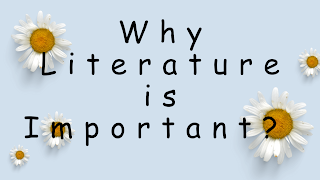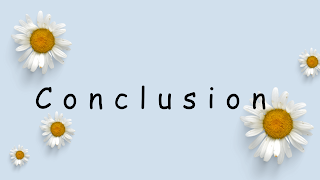Literature is primarily concerned with the settings and situations in which people interact, they’re living, work and play. The deeds of real people like you and me are shown in the literature. The literature focuses on the causes of these actions.

Any written work can be considered literature. But the term
is also used more specifically for works that are regarded as works of art,
especially prose fiction, drama, and poetry. In recent centuries, the concept
has been broadened to include oral literature. Most of them are copied. In
addition to serving as a means of preserving and enjoying knowledge, literature
can also serve social, psychological, spiritual, or political purposes.

Literature is the creative work that depicts human existence in a society in a way that society may appreciate, comprehend, and employ. Literature serves as a vehicle for social expression, a window into the life, and an interpretation of how people express themselves so that we can learn how to live.
According to its etymology, the word comes from the Latin literature
/ litteratura, Which means “writing prepared with letters” and means “learning,
writing or grammar.”
Literature has been defined in different ways over time. The written literature can be seen as a return to earlier, more comprehensive ideas. Because before the 18th century in Western Europe, literature denoted all books.
Cultural studies, for example, include popular and minority genres
in addition to canonical works. This phrase is also used for oral literature
and “literature of an illiterate civilization.” Both of these are unwritten.
The only type of writing that qualifies as literature is the
Belles letters (“fine writing”) tradition. It is considered to be of the
highest potential. Using the Encyclopædia Britannica’s definition of literature
as “the greatest representation of the best thought confined to paper”
(1910-11) is an example.
Definition of Literature according to the authors.
C. S. Lewis: “Literature adds to reality, it does not simply describe it. It enriches the necessary competencies that daily life requires and provides; and in this respect, it irrigates the deserts that our lives have already become.”
Oscar Wilde: “Literature always anticipates life. It does not copy it but molds it to its purpose. The nineteenth century, as we know it, is largely an invention of Balzac.”
G. K. Chesterton: “Literature is a luxury; fiction is a necessity.”
Virginia Woolf: “Literature is strewn with the wreckage of those who have minded beyond reason the opinion of others.”
Salman Rushdie: “Literature is where I go to explore the highest and lowest places in human society and in the human spirit, where I hope to find not absolute truth but the truth of the tale, of the imagination, and the heart.”
William Somerset Maugham: “The crown of literature is poetry.”
Johann Wolfgang von Goethe: “The decline of literature indicates the decline of a nation.”
Terry Eagleton: “Literature transforms language into an extraordinary expression of everyday speech into unique resonance, rhythm, and texture. Literature involves many kinds of good writing where no one can decide what literature in writing is and what is not.
Social values and institutions determine how people see the possibilities of literary work. Literature is pragmatic in that it is author-guided and reader-oriented while focusing on the wording that targets the intentions of both the writer and reader.”
Henry Van Dyke: "Literature consists of those writings which interpret the meaning of nature and life, in words of charm and. power, touched with the personality of the author, in artistic forms of permanent interest."

Literature connects all ages and cultures. From the writings of prehistoric societies such as Egypt and China to Greek philosophy and poetry, from the epics of Homer to the plays of William Shakespeare, from Jane Austen and Charlotte Brontë to Maya Angelou. The ability to open up a new realm of experience makes literature more than just a historical or cultural relic.


For example, it is well recognized that satirical or academic literary works have a favorable effect on people’s behavior and the structure of society. Literature is a powerful tool for effecting social and behavioral change. Reading books helps us to improve our language skills.
This is supported by the fact that language is the primary
medium of literary expression. Literature is the birthplace of phrases, figures
of speech, and other forms of expression.
6.
Since the beginning of time, individuals have been inspired to achieve great things through stories, films, plays, speeches, and poems.
Are these benefits of studying literature encouraging for you? You can use a variety of online resources to study more about literature at your comfort.

If used broadly, literature refers to a collection of written works. In English or any other language. However, this explanation is unable to explain what the literature is. But this is a great opportunity to talk about what distinguishes literary writing from non-literary writing.
In short, literature is any text that has artistic or intellectual value and uses a distinctive language that is different from everyday speech. It is also divided into other categories. These include poetry, novels, short stories, plays, fiction, and non-fiction.



0 Comments
any query? please inform us